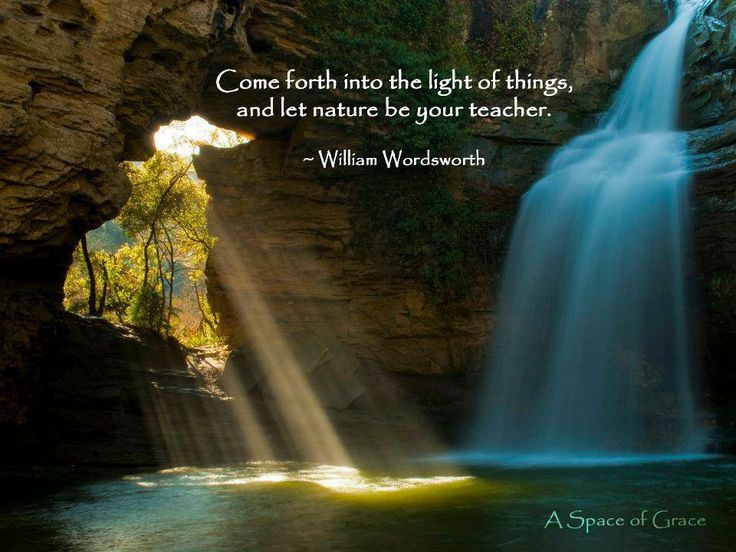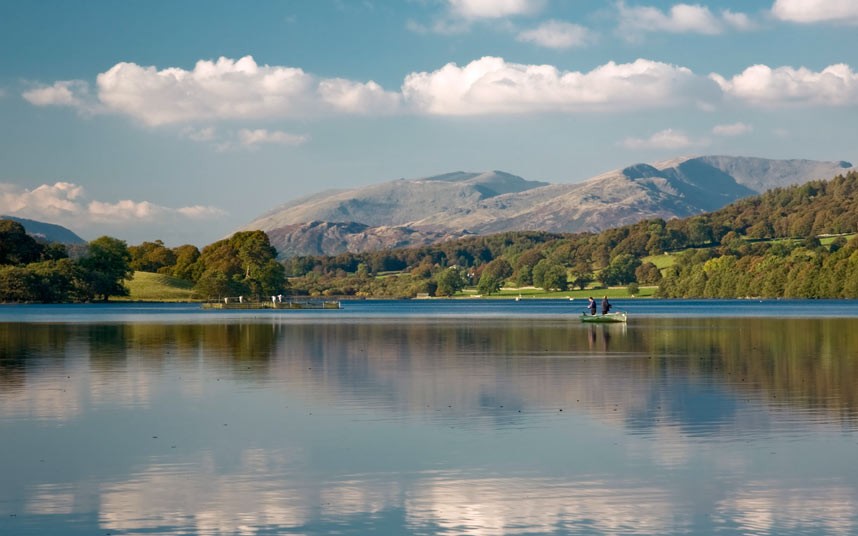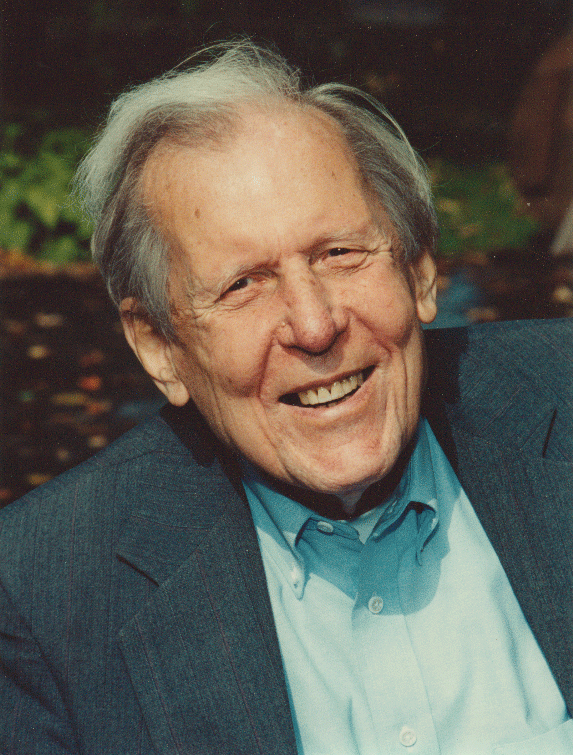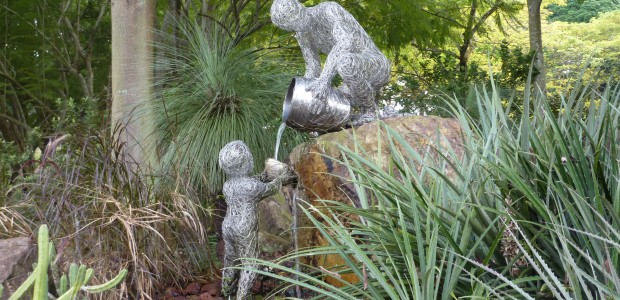- Details
- Written by: Kamran Mofid
- Hits: 4457

The beautiful and inspiring Lake District, UK
Photo: printerest.com
We should look beyond economics and open our eyes to beauty
“We seem to have forgotten that the human spirit is not satisfied by material progress alone. It’s time for us to reconnect with nature.”- Fiona Reynolds, former National Trust director general
“William Wordsworth is Britain’s best-loved poet, whose thoughts, sentiments and writings about people, nature and society, are so topical and current they could have been written yesterday. Wordsworth is known to be a worshiper of Nature. His love of Nature is tender and truer than any other English poets. There is a separate status of Nature in his poems. He believed that there is a divine spirit in nature. He believed that the company of nature gives joy to the human heart and he looked upon nature as a healing force. Above all, he regarded her as a great moral preacher. He believed that there is a link between man and nature. In his eyes, "Nature is a teacher whose wisdom we can learn if we will, and without which any human life is vain and incomplete. "He believed in the education of man by nature. "Sweet is the lore which Nature brings”.
"The Tables Turned”: "' Come forth into the light of things,
Let Nature be your teacher.

Up! up! my Friend, and quit your books;
Or surely you'll grow double:
Up! up! my Friend, and clear your looks;
Why all this toil and trouble?
The sun above the mountain's head,
A freshening lustre mellow
Through all the long green fields has spread, His first sweet evening yellow.

Esthwaite Water, Lake District. The lake that inspired William Wordsworth
Photo: telegraph.co.uk
Books! 'tis a dull and endless strife:
Come, hear the woodland linnet,
How sweet his music! on my life,
There's more of wisdom in it.
And hark! how blithe the throstle sings!
He, too, is no mean preacher:
Come forth into the light of things,
Let Nature be your teacher…- William Wordsworth
We should look beyond economics and open our eyes to beauty

In praise of the wonderous beauty of nature
Photo: vi.sualize.us
“Then, beauty mattered enough to shape policy for the public good. And so after the horror of two world wars, the 1945 government implemented a package of measures designed not only to meet people’s basic human needs but also their spiritual, physical and cultural wellbeing. The designation of National Parks, the protection of our cultural heritage and access to the countryside sat alongside the universal right to education, the NHS and the welfare state.
“We understood then, as we seem to have forgotten now, that the human spirit is not satisfied by material progress alone. As the 19th-century environmentalist John Muir said: “Everybody needs beauty as well as bread.”
“Yet today we seem to have become seduced by what the American economist Albert Jay Nock called “economism”: that which “can build a society which is rich, prosperous, powerful, even one which has a reasonably wide diffusion of material wellbeing. But it cannot build one which is lovely, one which has savour and depth, and which exercises the irresistible power of attraction that loveliness wields.”
Today when we talk about progress we mean only economic progress, and our measure of that is GDP. GDP charts only income, expenditure and production, and doesn’t even try to count the many things that matter but money can’t buy, the things that make us happy, and the natural resources on which we all depend.”…continue to read
Read more:
The future that awaits the human venture: A Story from a Wise and Loving Teacher
- Details
- Written by: Kamran Mofid
- Hits: 7358

Father Thomas Berry
Photo: thomasberry.org
“All creatures of Earth are looking to us for their destiny. Among these are our children and grandchildren, who depend on our decisions for the sustenance and flourishing of the life systems of the planet. This remains one of our primary challenges in the twenty first century.”-Father Thomas Berry, Evening Thoughts
Tribute to Father Thomas Berry
In the words and sentiments of Patrick Tolan:
“While this humble tribute can’t approach the eloquence of Thomas Berry, whose prose was “more akin to that of poetry, art, myth, or storytelling,” it can help to introduce those who don’t know Thomas Berry to his life and work, and can serve to remind those who knew him of what made him so special. “Beloved friend and companion,” “priest, prophet and seer,” “renowned scholar,” “thinker,” “Brother”; “[h]e was the truest man I ever knew.” These testimonies at Thomas’s funeral in Greensboro, Vermont, tell volumes about a man who epitomized truth and love.”-Patrick Tolan, Earth Jurisprudence and Environmental Justice Journal+
- Details
- Written by: Kamran Mofid
- Hits: 3809

"Passing of Knowledge" by Victor Tan Wee Tar
What is this life all about?
Why am I here? What’s my Life’s purpose? How can I make the most of my Life?
The Wisdom Corner
“Come, come, whoever you are. Wanderer, worshiper, lover of leaving. It doesn't matter. Ours is not a caravan of despair. come, even if you have broken your vows a thousand times. Come, yet again , come , come.”- Jalaluddin Rumi, The Persian Sage of Beauty, Wisdom and Love.
Come, come, whoever you are, come
Do you hear that voice calling you, calling us?
That voice which calls us together here today. That voice which calls us to remember that we are not alone and that we are inextricably linked to all other life—woven into a vast tapestry of existence of which we are a powerful, integral, and holy part.
And just as we have been called together here today, we act as the voice—the heart—the hands of another call:
Walk with the wanderers
Sing and dance with the worshipers
Proclaim the memory of those who have taken their leave
Wrap the despairing and the broken in the arms of love and community
And hold the hands of all of us who have broken our vows and call us back—again and again—to the covenant and work of justice, humility, and steadfast faithfulness.
For this we are here together today. So, my friends, come, yet again; come let us be together.
In search of beauty, wisdom and love? Then, come, come, whoever you are come, come to my Wisdom Corner
The links noted below are amongst my Blog postings which are there to provide ideas for inspirational stories for everyone, encouraging contemplation, soul searching and spiritual enrichment.
Whenever you get a chance, please take a few minutes to watch, listen and read some of the amazing narratives below: They are some examples of the many gems I have discovered in my life journey from the wisdom of others. They have opened new horizons in my life. For that I cannot be grateful enough.
Here, by sharing their wisdom with you, I hope they will do the same for you:
In search of beauty, wisdom and love? Then, come, come, whoever you are come
Transforming Lives for the Common Good: From Consumerism to Sustainability
Spiritual Ecology and 10 Practices to Reawaken the Sacred in Everyday Life
In Search of Well-being, Joy and Happiness: ‘Nature and ‘Forest Bathing’ is the Path
The future that awaits the human venture: A Story from a Wise and Loving Teacher
Sustainable Development Goals: Where is the Common Good?
In this troubled world let the beauty of nature and simple life be our greatest teachers
What might an Economy for the Common Good look like?
Wisdom of Lao Tzu: The Path to Virtue, Happiness, and Harmony
The Meaning of Life: tuesdays with Morrie
Adam Smith and the Pursuit of Happiness
Ten Virtues to Lead a Good Life
Build a Better World: The Healing Power of Doing Good
The Story of a Businessman for the Common Good
Sam Berns: ‘My Philosophy For A Happy Life’
In Search of Meaning in Life: Happiness Revealed
The Value of Values: Why Values Matter
The story of a boy from Iran who became a man in Coventry
Make 2017 the Year of Values-led Education to Make the World Truly Great Again
2016 the Year of Anger and Fear, 2017 the Year of Hope and Imagination, I hope
GCGI Christmas Appeal 2016: The Gift of Refugees and Migrants
Brexit, Trump and the failure of our universities to pursue wisdom
Make 2017 the Year of Values-led Education to Make the World Truly Great Again
How to defeat hatred and fear: Don't Despair Walk On
In Praise of Laughter and Joy in these Dark and Uncertain Times
What is Money? Is it Money Money Money, Must be funny?
Coventry’s Message of Hope to the World on the Armistice centenary and Remembrance Sunday
- “Remember, image is everything: Girls, this is your time to invest in some sophisticated glamour.”
- The blight on the conscience of the world: Why are so many youth and students killing and harming themselves?
- Stop the Seeds of Destruction: Toward teaching economics of the real world
- Is small the next big? The world is crying out for ‘Small is Beautiful’
- On the eve of London Anti- Corruption Summit- Values-led action to eradicate corruption
